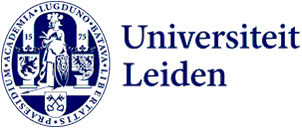
The future is queer and technological. Also human.
The history of the LGTBI+ collective, deeply marked by episodes of violence, repression, and discrimination, is also the history of the struggle for social change and the conquest of civil rights, advances without which contemporary Western democracies could not be explained. More recently, the implementation of concrete policies on affective, sexual, and gender diversity resulted from theoretical reflection and collective action over the decades, and the generations that initiated this journey are those who today reach old age.
Leading voices on the LGBTI+ discourse
The International Congress of LGTBI+ Elderly is a vital platform that brought together agents and entities and research and artistic initiatives from various disciplines and countries. The Congress featured amazing speakers such as Mani Bruce Mitchell who was the first person in New Zealand to come out as an intersex person, Marina Echebarría Sáenz, the first trans woman to access a university chair in Spain, Celeste González a renowned trans artist, and Caine Youngman, an LGBTIQ+ activist and one of the leading voices from the African continent Pan Africa at the International Lesbian, Gay, Bisexual, Trans, and Intersex Association (ILGA PAI) - among many others.
Fundación 26 Diciembre organised this Congress as a unique opportunity to foster dialogue among disciplines as part of their training initiatives designed to promote cross-cutting awareness and an intergenerational and intersectional commitment.
Past, Present, and Future
The Congress revolved around three axes: Past, Present, and Future. These are three orders of experience, inevitable and universal notions that, at certain stages of life, we tend to trivialise. As far as LGTBI+ elderly are concerned, these notions acquire a particular meaning, something that the Fundación 26 Diciembre identified, both in works on the memory of the LGTBI+ collective and in innovative projects for social intervention with the elderly.
The future is queer and technological. Also human.
The LGBTQAI+ community has always been a beacon of technological innovation, especially regarding meeting platforms. By challenging social norms and seeking safe spaces to connect, we have pioneered digital tools that have revolutionised how people connect. But what does the future hold? Eduard Fosch-Villaronga explored how technological innovations impact the LGBTI+ community and advocated a critical view of technological development. Eduard also explained how, at the same time, technology offers us possibilities that, with responsible design, can help us in ways that were previously only imaginable. Artificial intelligence, for example, enables the development of highly personalised chatbots that offer emotional and psychological support tailored to each person's individual needs and job search tools that prioritise inclusive and community-friendly companies. The talk ended by reflecting on the long-term impacts they may cause and how we can ensure that these tools do not separate us from our human nature.

Thank you!
Eduard would like to thank Víctor Mora Gaspar and Konstantinos Argyriou from Fundación 26 de Diciembre for organising the event and for bringing the community together in addressing such major topics.
